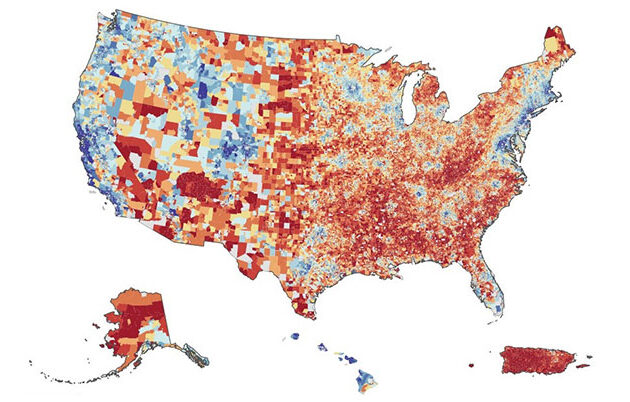Through our medical and public health lenses, we have seen the devastating impact of racism and inequity on communities and individuals alike. The contours of this pain are etched deeply in the experiences of our patients, learners, staff and faculty of color.
We have seen black patients in Wisconsin and beyond affected by delayed diagnoses, higher burden of disease, and hastened deaths due to limited access to health care.
We have seen decades of data showing that structural racism is a driving factor of unsafe housing, inadequate nutrition, barriers to attaining educational goals, and diminished economic opportunities in black and brown populations.
We have seen the physical and mental health tolls of black patients’ lifelong exposure to chronic stress caused by a wearying, endless need to navigate race-based bias, vitriol and hate.
When our school began its transformation into the nation’s first school of medicine and public health, it signaled our recognition that the destiny of populations and individuals are interwoven in ways that can neither be dismissed nor untangled. This reality drives us to continually ask how the health of a patient is tied to the health of the community and society in which they live.
It also requires us to act effectively in promoting the necessary changes for eliminating the destructive forces that drive health disparities. These destructive forces include racist behaviors at every level.
We are fully committed to:
- Continuing the difficult, inner work of recognizing how conscious and unconscious biases shape our own behavior, and identifying ways to break free of these limitations.
- Advocating for the health of our patients and populations by speaking out against racism at every level, by representing the interests of the marginalized and the vulnerable, and by creating systems of care, research, and education that are grounded in integrity, inclusion, and equality.
- Denouncing and opposing violence, which causes physical and emotional harm in individuals and damages the health of communities and populations.
Please join us in rededicating ourselves, individually and collectively, to the pursuit of social justice through peaceful, effective means, shaped by the shared values and vision of the School of Medicine and Public Health.
Respectfully,
Robert N. Golden, MD, Dean, School of Medicine and Public Health
Members of the Dean’s Leadership Team:
- Allan R. Brasier, MD, Senior Associate Dean for Clinical and Translational Research
- Hope Broadus, JD, Associate Dean for Human Resources
- Allison Golden, MA, Chief of Staff
- Richard L. Moss, PhD, Senior Associate Dean for Basic Research, Biotechnology and Graduate Studies
- Kenneth J. Mount, MPA, Senior Associate Dean for Finance
- Peter Newcomer, MD, Senior Associate Dean for Clinical Affairs
- Elizabeth Petty, MD, Senior Associate Dean for Academic Affairs
- Nancy Raymond, MD, Associate Dean for Faculty Affairs and Development
- Jonathan Temte, MD, PhD, Associate Dean for Public Health and Community Engagement

